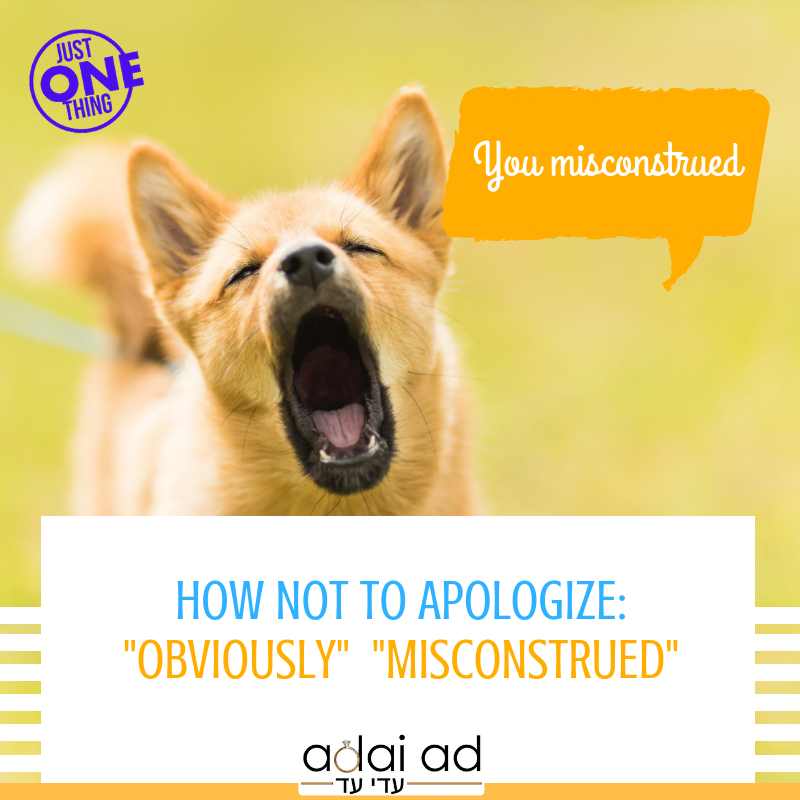Two words that have no place in any apology: “obviously” and “misconstrued.”
–
“I obviously didn’t mean to hurt you.”
The word “obviously” is not a humble word. If you obviously didn’t mean the horrible thing you said, why did you say it?
And if something really is obvious—if, say, you obviously didn’t intend to lose the tickets to the event, why point out it out?
–
“You misconstrued my noble intentions; that is not at all what I meant.” The word “misconstrued” puts the onus on the other for failing to see your real intentions. When using the word “misconstrued”, the speaker is trying to say that they are not the one at fault. In a good apology, you do not present yourself as the aggrieved one.


